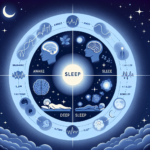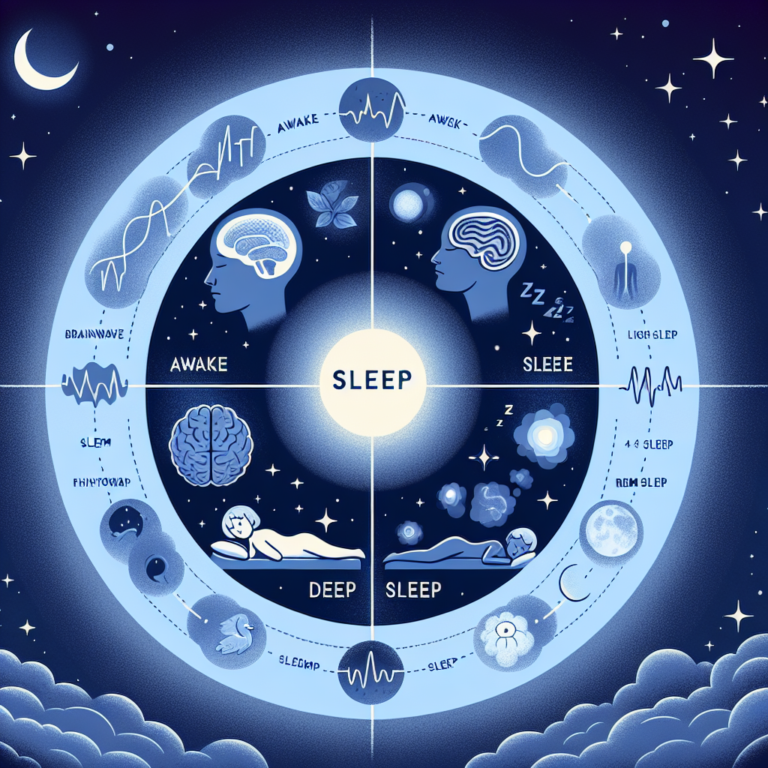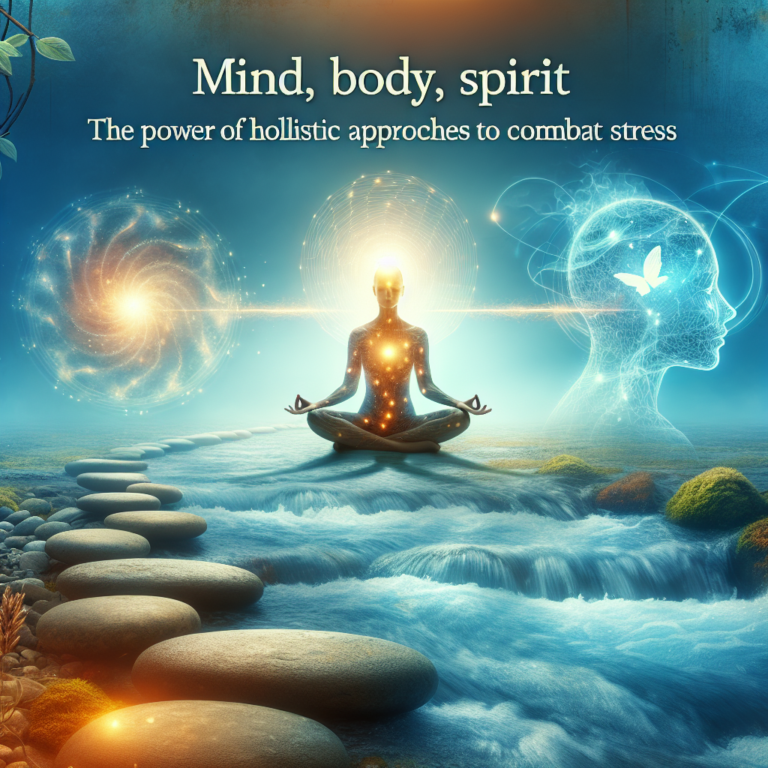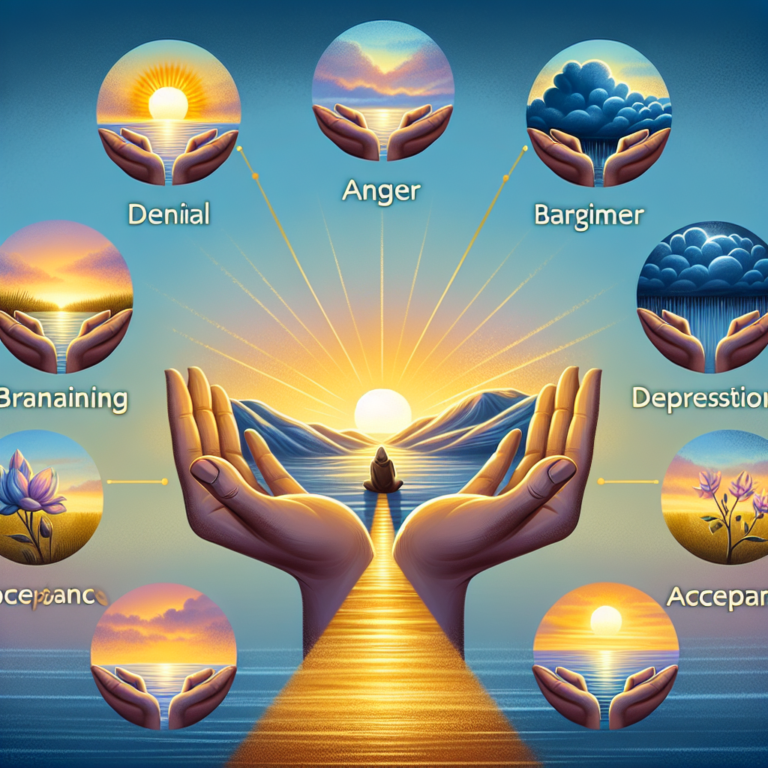The Ultimate Guide to the Science of Sleep: Understanding Each Stage of the Sleep Cycle
Introduction
Sleep is often an underappreciated aspect of our lives. We sideline it in favor of productivity, as if sacrificing it leads to greater achievements. However, the importance of sleep is backed by compelling science. The science of sleep: understanding each stage of the sleep cycle reveals not just the miraculous processes that occur while we snooze, but also their critical impacts on our physical health, mental clarity, and emotional well-being.
Imagine waking up feeling refreshed, energized, and ready to tackle the day ahead. The potential for such revitalization lies within understanding sleep—not just the quantity but the quality and the intricate cycles that occur throughout the night. Each stage of the sleep cycle plays a crucial role in maintaining our physical and mental health. Let’s take a deeper dive into the science of sleep by exploring its stages and their significance.
The Sleep Cycle: An Overview
What is the Sleep Cycle?
The sleep cycle is divided into two main types of sleep: Non-Rapid Eye Movement (NREM) sleep and Rapid Eye Movement (REM) sleep. These two types alternate throughout the night, typically cycling every 90 minutes.
Stages of NREM Sleep
Stage 1 (N1): Light Sleep
- Duration: A few minutes
- Characteristics: Transition between wakefulness and sleep; easy to wake up from.
Stage 2 (N2): Intermediate Sleep
- Duration: Approximately 20 minutes per cycle
- Characteristics: Heart rate slows, body temperature drops; the most extended stage in healthy adults.
- Stage 3 (N3): Deep Sleep
- Duration: 20-40 minutes
- Characteristics: Harder to wake up; tissue growth and repair occur here. This stage is essential for physical recovery and health.
REM Sleep
- Stage 4 (REM): Active Sleep
- Duration: 10-20 minutes
- Characteristics: Dreaming occurs; brain activity is high; important for memory consolidation and emotional processing.
The Importance of Each Sleep Stage
Understanding the science of sleep: understanding each stage of the sleep cycle starts with recognizing how each stage contributes to overall well-being.
N1 – The Gateway to Sleep
Stage 1 is where the journey begins. This light sleep stage serves as a transitional phase between wakefulness and sleep. You’re in a state of drowsiness, and sensory perceptions start to fade away.
Case Study: In a study on college students who reported chronic sleep deprivation, researchers found that increased daytime sleepiness severely impacted their academic performance. By prioritizing an extended period in Stage 1 sleep, these students showed noticeable improvements in mood stabilization and cognitive performance.
N2 – The Foundation of Sleep
Stage 2 is crucial for maintaining overall health. The body utilizes this period to prepare for deep sleep. It makes up the majority of sleep time in adults, constituting about 45-55% of sleep duration.
Case Study: In a research intervention with middle-aged individuals, increased time in Stage 2 sleep was linked to reduced anxiety and depression levels. Participants who focused on sleep hygiene reported more stable moods and increased energy throughout the day.
N3 – The Healing Phase of Sleep
Stage 3, known as deep sleep, is often referred to as slow-wave sleep. This stage is vital for restorative processes in the body. During N3, growth hormone is released, boosting muscle growth, tissue repair, and immune function.
Case Study: Athletes participating in a study on sleep cycles found that those who achieved optimal deep sleep experienced improved performance—both physically and mentally. Their recovery times also decreased, illustrating the direct correlation between N3 sleep and athletic performance.
REM – The Dream Stage
REM sleep is the final stage of the sleep cycle, where dreaming occurs and the brain processes the day’s events. It’s significant for learning and memory consolidation.
Case Study: In a neuropsychological study, subjects deprived of REM sleep exhibited noticeable memory deficits. Those who engaged in regular patterns of REM achieved better recall and more robust emotional regulation.
The Consequences of Sleep Deprivation
Unfortunately, our hectic lifestyles often lead to poor sleep habits and, as a result, impaired cognitive and physical performance. Chronic sleep deprivation disrupts the sleep cycle, robbing individuals of critical stages, particularly N3 and REM.
Impact on Health
- Physical Health: Reduced immunity, weight gain, and increased risk of chronic illnesses.
- Mental Health: Heightened anxiety, depression, and cognitive decline.
Table: Effects of Sleep Deprivation
| Stage Affected | Consequential Impact | Symptoms |
|---|---|---|
| N1 | Poor transition to sleep | Nighttime restlessness |
| N2 | Reduced cognitive functions | Impaired learning |
| N3 | Impaired physical recovery | Fatigue, muscle soreness |
| REM | Poor memory consolidation | Forgetfulness, emotional instability |
Optimizing Your Sleep
Understanding the science of sleep: understanding each stage of the sleep cycle empowers readers to raise awareness about their sleep habits. To achieve better sleep, consider these actionable insights:
1. Establish a Sleep Schedule
Consistency strengthens sleep quality. Going to bed and waking up at the same time daily regulates the body’s internal clock.
2. Create a Sleep-Friendly Environment
Dark, cool rooms promote better NREM and REM sleep. Consider blackout curtains, white noise machines, and comfortable bedding.
3. Limit Stimulants
Caffeine and nicotine should be minimized, especially in the hours leading up to bedtime, to promote deeper sleep cycles.
4. Wind Down Before Bed
Engaging in relaxing activities such as reading or meditating can ease the transition from wakefulness to sleep.
5. Monitor Naps
Short naps (20-minutes max) can rejuvenate but don’t interfere with nighttime sleep cycles.
Conclusion
The science of sleep: understanding each stage of the sleep cycle is not merely an academic endeavor but a roadmap to a healthier, happier life. By recognizing the critical roles that NREM and REM sleep stages play in our well-being, we can make informed choices to enhance our sleep hygiene.
Visualize waking each day with a clear mind and a revived spirit. Embracing and prioritizing sleep opens the door to a multitude of health benefits. So, cherish your sleep. It is not an indulgence but a necessity for navigating the challenges of daily life.
FAQs
1. How does aging affect sleep cycles?
As we age, the amount of deep sleep (N3) declines, leading to lighter sleep in older adults. Maintaining sleep hygiene becomes especially crucial.
2. How long should a good sleep cycle last?
Typically, a complete sleep cycle lasts about 90 minutes. Adults require 4-6 cycles each night for optimal health.
3. Can diet influence sleep quality?
Yes, certain foods can promote better sleep, such as those rich in magnesium and tryptophan. Avoid heavy meals close to bedtime.
4. What are the effects of interrupted sleep?
Frequent interruptions can disrupt sleep cycles, preventing the body from achieving critical stages, particularly N3 and REM.
5. Are sleep disorders common?
Yes, sleep disorders, such as insomnia and sleep apnea, affect millions. Seeking professional assistance is vital for treatment and recovery.
Engaging with the concept of sleep stages promises not only improved rest but an enhanced quality of life. Transform your sleep habits today, and unlock the full benefits of sleep for your mind and body.

















